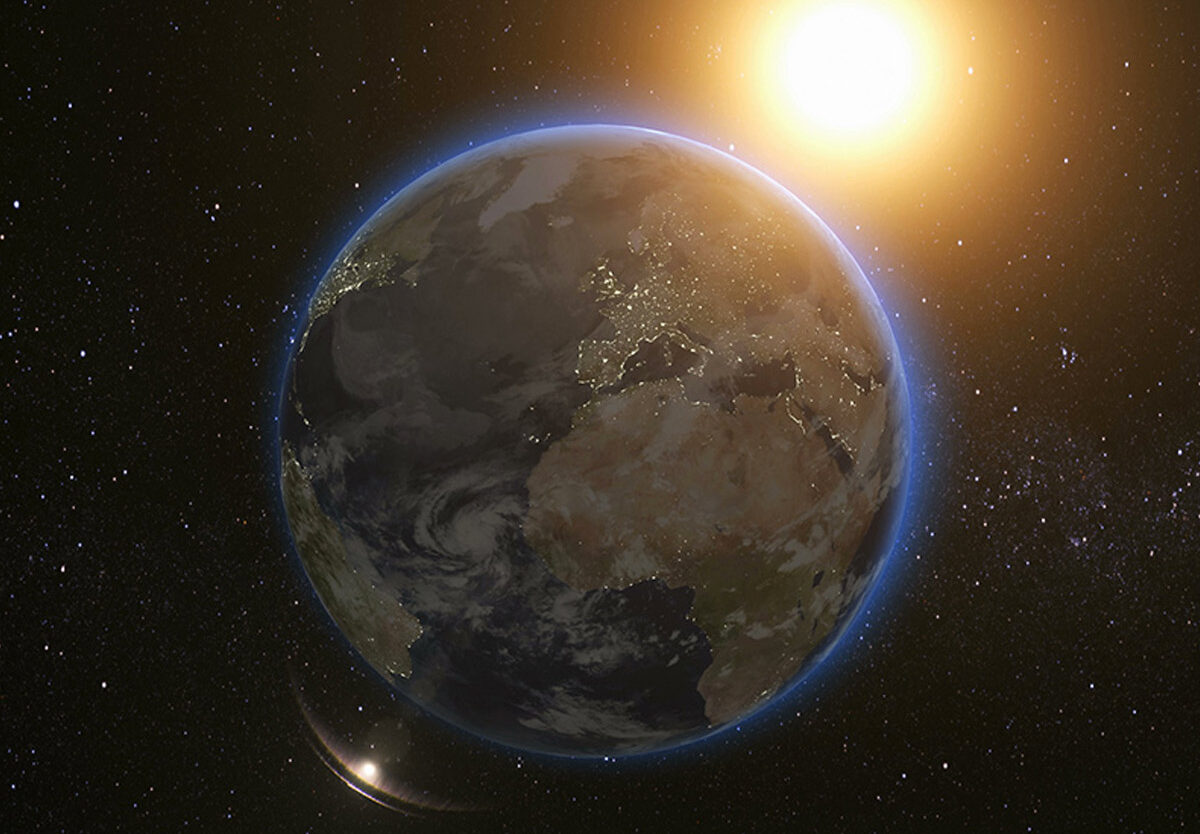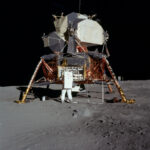Most of us probably know the Earth rotates on an almost-vertical axis every 24 hours, which gives us one Earth day. But this basic knowledge wasn’t always so undisputable. In 1851, French physicist Leon Foucault demonstrated how our planet rotates using his now-famous pendulum.
Today, Foucault’s Pendulums are a fixture in science museums around the world. The simple but brilliant contraption uses a suspended lead ball to indicate the rotation of the Earth over the course of a day. The pendulum is surrounded by small pins arranged in a circle, which the pendulum knocks down one by one, eventually completing a full rotation.
History of Earth's Rotation Day
The rotation of the Earth and its relationship to our daylight cycles has fascinated philosophers and scientists for thousands of years. As far back as 470 BCE, ancient Greeks speculated the Earth itself moves, rather than having the rest of the sky revolving around us. In the 10th century CE, Muslim astronomers started building astrolabes and other instruments to measure the movement of the Earth relative to the stars.
The first human depictions of the cosmos date back to 1,600 BCE. A bronze disk found in Northern Europe shows the sun, a crescent moon, and the Pleiades star cluster, and written records from the Babylonians record the position of celestial bodies. Arguably the earliest scientific observations, these records make astronomy the oldest known science.
Although humans have observed the stars for thousands of years — some early theories proposed that the Earth moved — the geocentric theory remained dominant in Europe until the work of Nicolaus Copernicus in the 1500s, proving the Earth does actually revolve around the sun. Following his work, others tried to prove the rotation of the Earth through various experiments. While the theory became accepted by the mid-1800s through observation of astronomical movements, it was Foucault’s pendulum that demonstrated, visibly and spectacularly, the rotation of the Earth.
Foucault first conducted his pendulum experiment in the Paris Observatory, then the Panthéon, where it remains an impressive centerpiece today. While they vary in size, pendulums work best with long lines, typically between 40 and 100 feet. A heavy, swinging lead bob is suspended at the end of a line. As the bob swings back and forth, it slowly moves in a clockwise direction as the Earth rotates under it.
Today, Foucault’s Pendulums are a fixture in science museums, observatories, and universities all over the world.
Earth's Rotation Day timeline
Leon Foucault suspends a lead bob from a 220-ft wire and lets it swing, proving beyond a doubt that the Earth rotates throughout the day.
Copernicus's heliocentric system, which places the Sun at the center of the solar system, sets the stage for a modern understanding of planetary motion.
Astronomer Aryabhata writes that the Earth rotates on its axis every day, which explains the apparent movement of the stars.
Greek philosopher Philolaus develops a complicated system speculating that the Earth rotates. His theory also included a counter-earth rotating in the opposite direction.
Earth's Rotation Day FAQs
How many times does the Earth rotate in a day?
Earth rotates once in about 24 hours with respect to the Sun, but once every 23 hours, 56 minutes, and 4 seconds with respect to other, distant, stars.
Does Earth’s rotation affect flight times?
If the air is not moving the same as the ground, it’s called wind, which is the primary influence on flight time. The wind is influenced by the Earth’s rotation, but the rotation doesn’t directly influence flight time.
What if Earth stopped spinning?
If the Earth stopped spinning suddenly, the atmosphere would still be in motion with the Earth’s original 1100 mile per hour rotation speed at the equator. This means rocks, topsoil, trees, buildings, your pet dog, and so on, would be swept away into the atmosphere.
How to Celebrate Earth’s Rotation Day
Find a Foucault’s Pendulum near you
Foucault’s contraption can now be found in science and astronomy museums around the world. Look up your local museums and see if you can find one near you!
Study up on the Earth’s rotation
Did you know that an astronomical day isn’t exactly 24 hours? Or that the Earth is tilted at an angle that varies between 22.1 and 24.5 degrees? Earth’s Rotation Day is a great opportunity to brush up on astronomy facts.
Thank a science educator
Science teachers are some of the people who help us make sense of the world and stimulate our curiosity about how things work. Take some time to thank a science educator in your life for all their work.
Interesting Facts About The Earth
The Earth is a magnet
The molten iron core of the Earth creates a strong magnetic field, which channels solar wind around the earth, protecting us from the harmful effects of solar radiation.
Leap years
Although our calendar year has 365 days, a full solar year contains an extra quarter of a day, leading to the tradition of adding a "leap" day every 4 years.
The Earth's rotation is slowing down
The speed at which the Earth rotates is decelerating around 17 milliseconds every hundred years. At that rate, it will take over 100 million years for our day to lengthen to 25 hours.
Most of the Earth's surface is water
The Earth's surface is 70% covered by water. Of that, 97% is salt water and only 3% is freshwater!
The Earth is seriously old
By studying rocks in different parts of the globe, scientists have calculated that our planet is just around 4.5 billion years old.
Why We Love Earth’s Rotation Day
Foucault's Pendulums are fun to watch
Check out the Foucault's Pendulum at your local science museum and you might find yourself mesmerized by the rhythmic movement of the simple yet revolutionary device.
It's a good chance to think big
Contemplating the vastness of the universe and the mysteries of space can take us away from our everyday troubles and remind us to appreciate the infinite cosmos.
Our knowledge of space is always growing
Although our knowledge of the universe has grown since humans first started gazing towards the heavens, we're always exploring new frontiers through improved technology and refined scientific theories. With the universe constantly expanding, astronomers and astronauts will stay busy for the foreseeable future.
Earth's Rotation Day dates
| Year | Date | Day |
|---|---|---|
| 2026 | January 8 | Thursday |
| 2027 | January 8 | Friday |
| 2028 | January 8 | Saturday |
| 2029 | January 8 | Monday |
| 2030 | January 8 | Tuesday |















